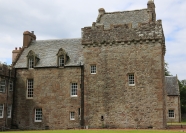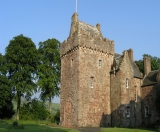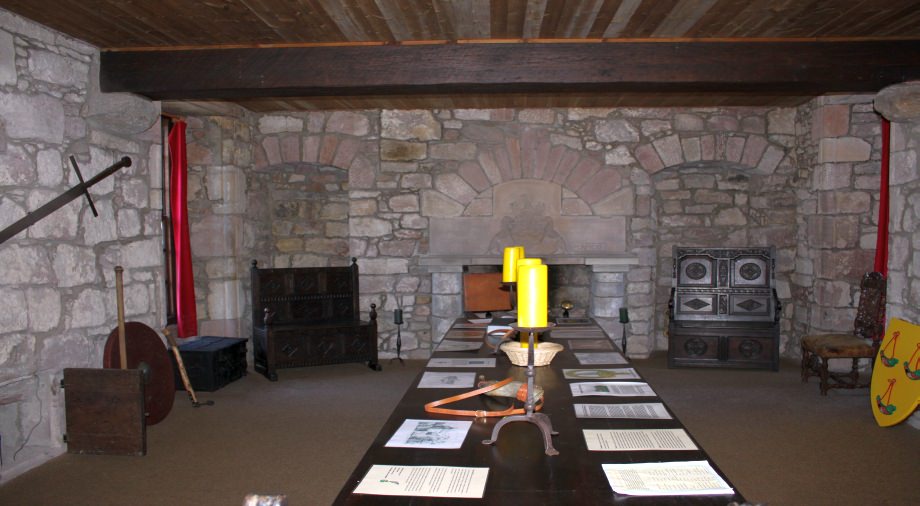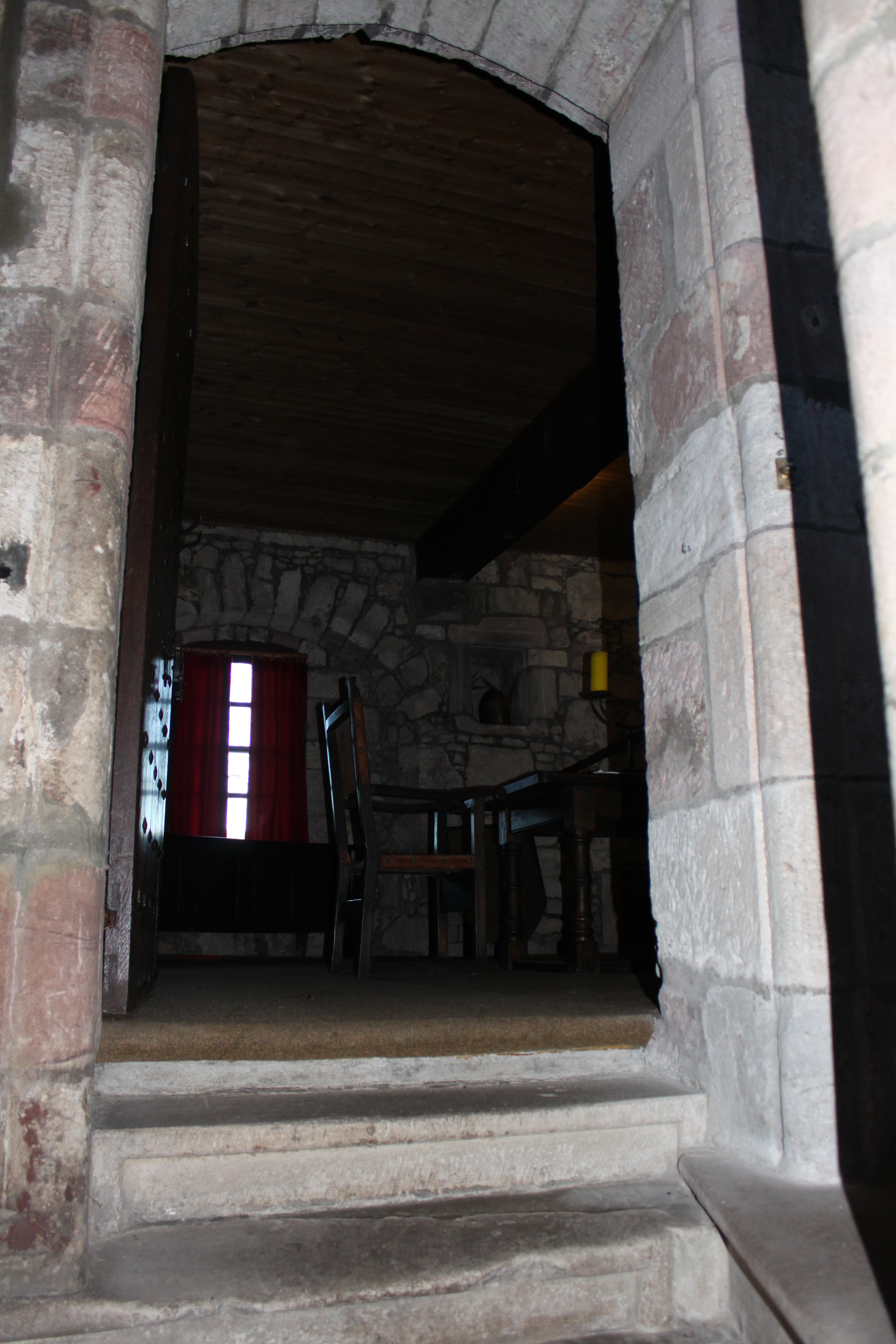









HUNTERSTON CASTLE
© 1999 - 2021
"The Great Hall was the Social Centre for the early Hunter's but has many interesting features"
In the late medieval period this room would simply have been referred to as the "hall", but the term "great hall" has been predominant for surviving rooms of this type for several centuries to distinguish them from the different type of hall found in post medieval buildings.
A typical great hall like this one is a rectangular room between one and a half and three times as long as it was wide, and also higher than it was wide. It was entered through a screens passage at one end, and had windows on one of the long sides.
It was a multifunction room and was used for receiving guests and it was the place where the household would dine together, including the lord of the house, his gentleman attendants and at least some of the servants. At night some members of the household and guests might sleep on the floor of the great hall and administrative dealings would have been done here too.
By the late 1700s the great hall was beginning to lose its purpose. The greater centralisation of power in the lairds hand meant that men of good social standing were less inclined to enter into the services of a lord in order to obtain his protection. As the social gap between master and servant grew, there was less reason for them to dine together and servants were banished from the hall.
Just imagine how it might have looked with rushes strewn on the floor, candles buring in sconces on the wall and a fire in the middle of the room and on the south facing wall. It would have been smelly with rotten food and faeces of the animals walking about.
A day in the life of the household would usually begin at sunrise with the servants ensuring that fires were lit wherever required within the castle before then starting to prepare the main meal of the day. Breakfast would be a light meal of bread and drink prior to morning religious services. By mid morning the main meal would be ready. There would often be entertainment during the serving of courses. The third and final meal of the day was in the evening and would have be a light meal.
At other times all administration, court dealings and entertainment would have taken place.
In the late medieval period this room would simply have been referred to as the "hall", but the term "great hall" has been predominant for surviving rooms of this type for several centuries to distinguish them from the different type of hall found in post medieval buildings.
A typical great hall like this one is a rectangular room between one and a half and three times as long as it was wide, and also higher than it was wide. It was entered through a screens passage at one end, and had windows on one of the long sides.
It was a multifunction room and was used for receiving guests and it was the place where the household would dine together, including the lord of the house, his gentleman attendants and at least some of the servants. At night some members of the household and guests might sleep on the floor of the great hall and administrative dealings would have been done here too.
By the late 1700s the great hall was beginning to lose its purpose. The greater centralisation of power in the lairds hand meant that men of good social standing were less inclined to enter into the services of a lord in order to obtain his protection. As the social gap between master and servant grew, there was less reason for them to dine together and servants were banished from the hall.
Just imagine how it might have looked with rushes strewn on the floor, candles buring in sconces on the wall and a fire in the middle of the room and on the south facing wall. It would have been smelly with rotten food and faeces of the animals walking about.
A day in the life of the household would usually begin at sunrise with the servants ensuring that fires were lit wherever required within the castle before then starting to prepare the main meal of the day. Breakfast would be a light meal of bread and drink prior to morning religious services. By mid morning the main meal would be ready. There would often be entertainment during the serving of courses. The third and final meal of the day was in the evening and would have be a light meal.
At other times all administration, court dealings and entertainment would have taken place.
- Home
- Ground Floor
- First Floor
- Floor Plan
- Living Room
- Living Room - Fireplace
- Living Room - Hatch
- Living Room - Toilet
- Living Room - Windows
- Living Room - Aumbry
- Living Room - Walls
- Living Room - Furniture
- Living Room - Roof
- Original Door
- Great Hall
- Great Hall - Chute
- Great Hall- Fireplace
- Stoddart
- Great Hall - Aumbry
- Great Hall - Table
- Great Hall - Walls
- Great Hall - Brooch
- Second Floor
- Third Floor
- Roof
- 11th to 13th Century
- Donate
- Old Images
- Contact
- Books

